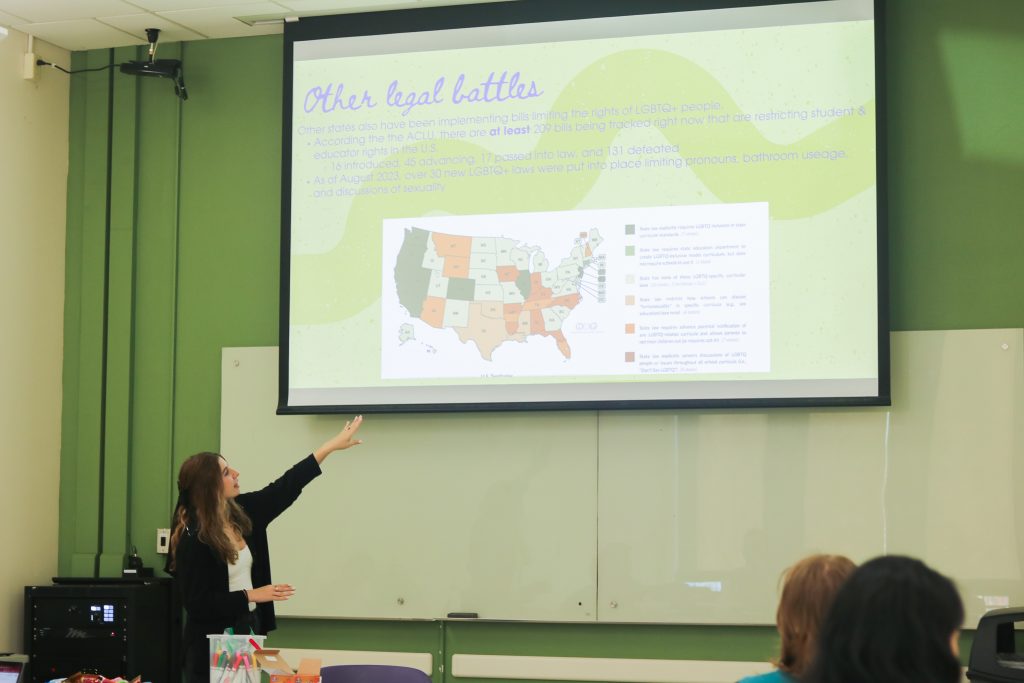As anti-LGBTQ+ legislation continues to be passed throughout the United States, on-campus organizations met to discuss the struggles the queer community faces in education.
The Rainbow Pride Union and the Education Minor hosted a presentation titled “Erasing Equality: Decline of LGBTQ+ Rights in Education” on Tuesday to shed light on queer erasure in the educational system. Held in the University Union, the event united various students to discuss the impact recent anti-LGBTQ+ legislation has on students and educators across the country.
Centering on growing concern over the erosion of LGBTQ+ rights in schools, the legislative battles happening across the country were discussed during the presentation. A significant portion highlighted Florida’s controversial legislation, colloquially known as “Don’t Say Gay”, which restricts discussions of sexual orientation and gender identity in K-3 classrooms. Passed in 2022, the bill grants parents the right to opt their children out of these conversations, framing it as an issue of parental control over education.
Emily Caccamo, a senior majoring in English who presented at the event, said that although this bill originated in Florida, similar legislation has been passed in other states — threatening to erase LGBTQ+ presence from schools across the nation.
“We’re not allowed to talk about it,” Caccamo said. “We’re not allowed to learn about it. We’re not allowed to be gay.”
Beyond limiting classroom discussions, these laws also prohibit educators from asking students for their chosen names or pronouns. A recent survey by the University of California, Los Angeles’ Williams Institute found that 88 percent of LGBTQ+ parents in Florida expressed concern about the legislation’s impact, with over half considering leaving the state entirely.
Policies like these contribute to a hostile environment, Caccamo said, as teachers fear losing their jobs if they openly acknowledge their LGBTQ+ identities, with most opting to avoid the topic completely.
Caccamo noted the growing number of book bans targeting LGBTQ+ themes, as administrators have pulled books like “And Tango Makes Three” and “Everywhere Babies,” which feature same-sex parents or gender-fluid characters, from school libraries.
Following the presentation, an open discussion began, where students shared stories about their experiences with gender and sexuality expression in school. One student recalled their experience attending a Catholic high school, where homophobia was rampant and discussions about sexuality were off-limits.
“For me, it wasn’t really an option to be out, or at least it didn’t feel like it,” they said. “A lot of my friends were out and I watched them face bullying, I watched them be called slurs, and I didn’t want that and I knew it was an option for me to not have that if I just dated boys. So, I repressed it. I felt shameful, I felt like I had to hide myself, and it wasn’t until halfway through my freshman year of college that I started to openly tell people about my sexuality.”
Caccamo said that everyone shares a responsibility to combat the erasure of LGBTQ+ rights in schools and uplift safe spaces for LGBTQ+ youth as legislation continues to be passed, pushing students “back into the closet.”
“It is our job as future educators and just as people to make sure that everyone has a safe space where they belong,” Caccamo said.



